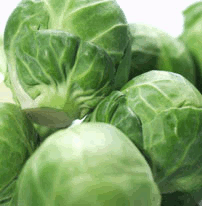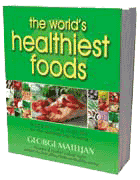What to eat to help prevent alcohol cravings and withdrawal
We assume that this question is not only about alcohol craving, but also about alcohol withdrawal. Most people would not experience alcohol craving unless they had previously had problems with alcohol use. It's important to put the food issues into context, because in some circumstance, foods can do very little to help with alcohol withdrawal or alcohol avoidance, and other lifestyle changes, medical treatment, or therapeutic-dose dietary supplements are needed.
There is a fairly large amount of research about the potential benefits of nutritional supplements during periods of alcohol withdrawal. The greatest focus here has been on the B-complex vitamins, although all of the major vitamins (vitamins A, C, D, and E in addition to the B-complex vitamins) have been found to play a potentially helpful role. If you would like to pursue this route of healthcare, we suggest working directly with a licensed healthcare practitioner who has experience with dietary supplements.
Studies with humans have shown that greatly reducing intake of sugars and caffeine can directly lower alcohol cravings. In the case of sugars, this would mean avoidance of processed desserts and treats with greater than about 10 grams of sugar per serving; avoidance of sodas; avoidance of dried fruits and fruit juices except in limited amounts (like a 4 ounce glass of juice or a few tablespoons of raisins on cereal); and of course, very little use of table sugar. In the case of caffeine, the benefits would come from elimination of caffeinated sodas; elimination of coffee or tea, unless decaffeinated; and elimination of chocolate, except in fairly small amounts (like 3-4 small chocolate squares). Both simple sugars and caffeine can have an impact on your blood sugar regulation, and this connection with blood sugar is interesting, because there has been some evidence in the research that stabilizing blood sugar can help reduce alcohol (sugar) SS cravings. In summary, although it can be difficult to steer clear of these two substances, the research suggests that it's worth it in terms of alcohol craving.
A second step is to make sure that your diet is filled with nutrient-rich foods so that you can get all the nutrients your body needs to operate at its best including helping to support your liver and other detoxification processes. From our perspective, the very best way to accomplish this goal of nutrient richness is to fill your meal plan with as many of the World's Healthiest Foods as possible. There just aren't any foods that can bring in so many nutrients so easily. Alcohol depletes a wide range of nutrients, including B vitamins, and so it is important to ensure that your diet supplies enough.
We realize that many people may be interested in learning more about the relationship between alcohol craving, food, and blood sugar regulation.
The research abstract below will give you a better idea about the way scientists have been investigating this relationship.
"Biery JR, Williford JH Jr, McMullen EA. Alcohol craving in rehabilitation: assessment of nutrition therapy. J Am Diet Assoc. 1991 Apr;91(4):463-6.
Abstract: If untreated, alcohol abuse, which often results from alcohol craving, causes major metabolic abnormalities, altered life-styles, lost productivity, and eventually death. Biochemical mechanisms that may contribute to alcohol craving include the stress response of the hypothalamic-pituitary adrenal axis, the endogenous opiate beta-endorphin system, neurotransmitter synthesis and release, hypoglycemia, and nutrient deficiencies. The macronutrient ratio of meals, the resulting insulin response, and nutrient blood levels can affect amino acid and nutrient transport across the blood-brain barrier. Researchers have reported that animals increase alcohol intake when fed nutrient-deficient diets or after stressful experience. A pilot study was designed to assess the effects of nutrition therapy added to a traditional rehabilitation program based on the 12-step program of Alcoholics Anonymous. One study group received traditional therapy; the other study group received traditional therapy and nutrition therapy consisting of modified menus and individualized nutrition counseling. Patients who received nutrition therapy reported significantly fewer hypoglycemic symptoms, lower sugar intake, less alcohol craving as well as significantly greater nutrient intakes; a greater number abstained from alcohol. These findings indicate that nutrition therapy can aid in the recovery from alcoholism."
For more individualized assistance, we would suggest consulting with a licensed healthcare practitioner skilled in nutrition, such as a nutritionist, dietitian or naturopathic physician who can help to give you dietary recommendations that can best meet your individual needs.
References:
Guenther RM. Role of nutritional therapy in alcoholism treatment. Int J Biosoc Res. 1983;4:5-18.
Werbach MR. Alcohol craving. Int J Altern Complementary Med. 1993;July:32.
Biery JR, Williford JH, McMullen EA. Alcohol craving in rehabilitation: assessment of nutrition therapy. J Am Diet Assoc. 1991;91:463-6.






